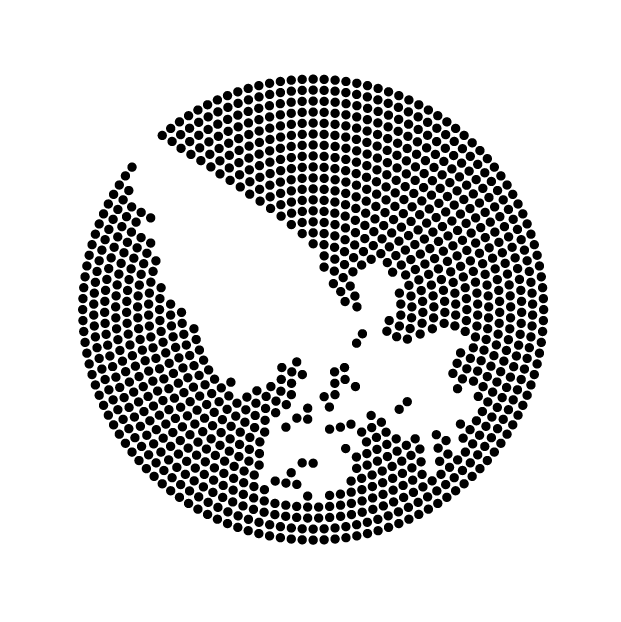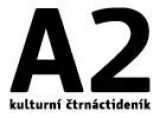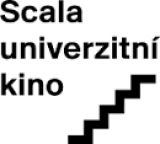2020/21
Season 46:
Adaptation
Our global civilization has already experienced so many ups and downs that, compared to human life, it is more in retirement age (in which it must reckon with its fragility). However, our behaviour seems more as if we were showing signs of never-ending youth and were only offered opportunities for unlimited growth. We have the means to destroy not only ourselves, but also to threaten the existence of future forms of life that could come after us. Our maturity and experience have so far brought neither wisdom nor responsibility – instead, we find ourselves in a dangerously prolonged midlife crisis, constantly buying Harleys of civilization and embarking on wild journeys in an effort to simulate lasting happiness and ignore all the limits that our era imposes on us. But as we are finding out, we are not the only ones who have something to say about the shape of the world. The COVID-19 crisis was seen by many as the first global crisis after a long period of apparent peace and prosperity. But can we really call the corona crisis a crisis and that which preceded it a normal state to which it is worth returning? Is it not more valuable in this altered (emergency) state of consciousness to grasp this crisis, so impressive in the media, as an important background that reveals our vulnerability as well as other crises threatening the survival on our planet? What we have witnessed in this new experience was a definite and clear understanding of the interconnectedness of all – not only in our bodies but also our societies. Also the line between natural and human, which has until recently been very clear, has disappeared, and we have the opportunity to see to what extent we all overlap and how much we depend on each other. In short, we live in an environment for which we are co-responsible, but which at the same time will never be completely understandable and will therefore forever remain a little out of our control. It is therefore essential to start talking about ways of adapting to this fragility and interdependence – the adaptation will be either conscious or forced by external circumstances (and even in the first case does not envisage any certainty and guaranteed outcomes). The world which we laboriously tried to explore and conquer and which we wanted to grasp in its totality and to bring under control, is simply gone. Now the most realistic view of the world seems to be one that is constantly in motion and allows for the unknown and incomprehensible. But how should we really feel in a world of multicrises, which is so unpredictable? Can we feel hopeful? Is it possible to adapt without joy? When did the whole crisis actually start? Is it not connected to the excess of human occurrence? After all, isn’t all organic life (in the otherwise inorganic Universe) an excess? And what if crises and excesses are the essence of our being, because outside them only the “normalcy” of death and non-existence awaits us? Crisis and excess as our living space. Human and inhuman. The joy of creative potential is unknown. We’re still here. ‘We’ is more than we thought. ADAPTATION.Our global civilization has already experienced so many ups and downs that, compared to human life, it is more in retirement age (in which it must reckon with its fragility). However, our behaviour seems more as if we were showing signs of never-ending youth and were only offered opportunities for unlimited growth. We have the means to destroy not only ourselves, but also to threaten the existence of future forms of life that could come after us. Our maturity and experience have so far brought neither wisdom nor responsibility – instead, we find ourselves in a dangerously prolonged midlife crisis, constantly buying Harleys of civilization and embarking on wild journeys in an effort to simulate lasting happiness and ignore all the limits that our era imposes on us. But as we are finding out, we are not the only ones who have something to say about the shape of the world. The COVID-19 crisis was seen by many as the first global crisis after a long period of apparent peace and prosperity. But can we really call the corona crisis a crisis and that which preceded it a normal state to which it is worth returning? Is it not more valuable in this altered (emergency) state of consciousness to grasp this crisis, so impressive in the media, as an important background that reveals our vulnerability as well as other crises threatening the survival on our planet? What we have witnessed in this new experience was a definite and clear understanding of the interconnectedness of all – not only in our bodies but also our societies. Also the line between natural and human, which has until recently been very clear, has disappeared, and we have the opportunity to see to what extent we all overlap and how much we depend on each other. In short, we live in an environment for which we are co-responsible, but which at the same time will never be completely understandable and will therefore forever remain a little out of our control. It is therefore essential to start talking about ways of adapting to this fragility and interdependence – the adaptation will be either conscious or forced by external circumstances (and even in the first case does not envisage any certainty and guaranteed outcomes). The world which we laboriously tried to explore and conquer and which we wanted to grasp in its totality and to bring under control, is simply gone. Now the most realistic view of the world seems to be one that is constantly in motion and allows for the unknown and incomprehensible. But how should we really feel in a world of multicrises, which is so unpredictable? Can we feel hopeful? Is it possible to adapt without joy? When did the whole crisis actually start? Is it not connected to the excess of human occurrence? After all, isn’t all organic life (in the otherwise inorganic Universe) an excess? And what if crises and excesses are the essence of our being, because outside them only the “normalcy” of death and non-existence awaits us? Crisis and excess as our living space. Human and inhuman. The joy of creative potential is unknown. We’re still here. ‘We’ is more than we thought. ADAPTATION.Our global civilization has already experienced so many ups and downs that, compared to human life, it is more in retirement age (in which it must reckon with its fragility). However, our behaviour seems more as if we were showing signs of never-ending youth and were only offered opportunities for unlimited growth. We have the means to destroy not only ourselves, but also to threaten the existence of future forms of life that could come after us. Our maturity and experience have so far brought neither wisdom nor responsibility – instead, we find ourselves in a dangerously prolonged midlife crisis, constantly buying Harleys of civilization and embarking on wild journeys in an effort to simulate lasting happiness and ignore all the limits that our era imposes on us. But as we are finding out, we are not the only ones who have something to say about the shape of the world. The COVID-19 crisis was seen by many as the first global crisis after a long period of apparent peace and prosperity. But can we really call the corona crisis a crisis and that which preceded it a normal state to which it is worth returning? Is it not more valuable in this altered (emergency) state of consciousness to grasp this crisis, so impressive in the media, as an important background that reveals our vulnerability as well as other crises threatening the survival on our planet? What we have witnessed in this new experience was a definite and clear understanding of the interconnectedness of all – not only in our bodies but also our societies. Also the line between natural and human, which has until recently been very clear, has disappeared, and we have the opportunity to see to what extent we all overlap and how much we depend on each other. In short, we live in an environment for which we are co-responsible, but which at the same time will never be completely understandable and will therefore forever remain a little out of our control. It is therefore essential to start talking about ways of adapting to this fragility and interdependence – the adaptation will be either conscious or forced by external circumstances (and even in the first case does not envisage any certainty and guaranteed outcomes). The world which we laboriously tried to explore and conquer and which we wanted to grasp in its totality and to bring under control, is simply gone. Now the most realistic view of the world seems to be one that is constantly in motion and allows for the unknown and incomprehensible. But how should we really feel in a world of multicrises, which is so unpredictable? Can we feel hopeful? Is it possible to adapt without joy? When did the whole crisis actually start? Is it not connected to the excess of human occurrence? After all, isn’t all organic life (in the otherwise inorganic Universe) an excess? And what if crises and excesses are the essence of our being, because outside them only the “normalcy” of death and non-existence awaits us? Crisis and excess as our living space. Human and inhuman. The joy of creative potential is unknown. We’re still here. ‘We’ is more than we thought. ADAPTATION.Our global civilization has already experienced so many ups and downs that, compared to human life, it is more in retirement age (in which it must reckon with its fragility). However, our behaviour seems more as if we were showing signs of never-ending youth and were only offered opportunities for unlimited growth. We have the means to destroy not only ourselves, but also to threaten the existence of future forms of life that could come after us. Our maturity and experience have so far brought neither wisdom nor responsibility – instead, we find ourselves in a dangerously prolonged midlife crisis, constantly buying Harleys of civilization and embarking on wild journeys in an effort to simulate lasting happiness and ignore all the limits that our era imposes on us. But as we are finding out, we are not the only ones who have something to say about the shape of the world. The COVID-19 crisis was seen by many as the first global crisis after a long period of apparent peace and prosperity. But can we really call the corona crisis a crisis and that which preceded it a normal state to which it is worth returning? Is it not more valuable in this altered (emergency) state of consciousness to grasp this crisis, so impressive in the media, as an important background that reveals our vulnerability as well as other crises threatening the survival on our planet? What we have witnessed in this new experience was a definite and clear understanding of the interconnectedness of all – not only in our bodies but also our societies. Also the line between natural and human, which has until recently been very clear, has disappeared, and we have the opportunity to see to what extent we all overlap and how much we depend on each other. In short, we live in an environment for which we are co-responsible, but which at the same time will never be completely understandable and will therefore forever remain a little out of our control. It is therefore essential to start talking about ways of adapting to this fragility and interdependence – the adaptation will be either conscious or forced by external circumstances (and even in the first case does not envisage any certainty and guaranteed outcomes). The world which we laboriously tried to explore and conquer and which we wanted to grasp in its totality and to bring under control, is simply gone. Now the most realistic view of the world seems to be one that is constantly in motion and allows for the unknown and incomprehensible. But how should we really feel in a world of multicrises, which is so unpredictable? Can we feel hopeful? Is it possible to adapt without joy? When did the whole crisis actually start? Is it not connected to the excess of human occurrence? After all, isn’t all organic life (in the otherwise inorganic Universe) an excess? And what if crises and excesses are the essence of our being, because outside them only the “normalcy” of death and non-existence awaits us? Crisis and excess as our living space. Human and inhuman. The joy of creative potential is unknown. We’re still here. ‘We’ is more than we thought. ADAPTATION.
(Czech) Budoucnost divadla (Czech) Remediace rozpracované inscenace Zeď The Wall Throughout the performance there is a performance under way (Czech) Dům kultury a únavy










